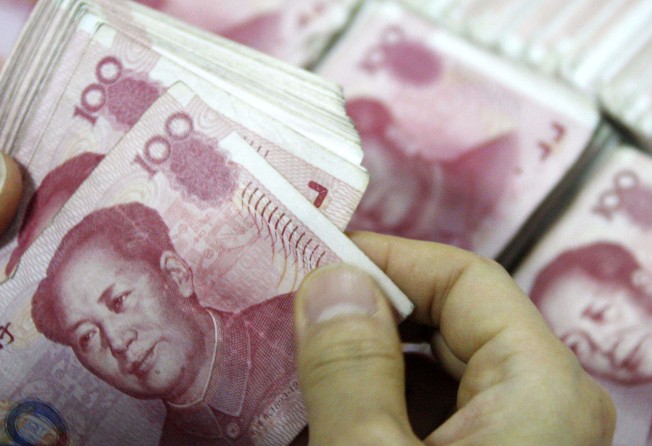Stock Connect will be ‘unaffected’ by new PBOC caps on capital outflow

The new cap ordered by the People’s Bank of China on the outflow of yuan will not affect the two Stock Connect share trading schemes, that link the Hong Kong stock market with their equivalents in Shanghai and Shenzhen, according to Hong Kong Exchanges and Clearing (HKEX), or stockbrokers, according to officials.
With just days before the launch of the Shenzhen-Hong Kong Stock Connect on Monday, the central bank issued orders to cap the amounts companies can invest overseas.
Companies cannot now invest more than 30 per cent of their equities stakes.
Analysts said they viewed the move as the government’s latest effort to prevent capital outflow from the mainland, as many companies and individuals continued investing into overseas assets to escape the devaluation of the yuan, which has fallen 7 per cent this year against the US dollar.
“There is no fund outflow in the Stock Connect mechanism because fund flow is insulated within a closed loop,” said a spokesman for HKEX.
“Once Hong Kong and international investors sell their A-shares or mainland investors sell Hong Kong shares, money flows back into their home market accounts.
“Funds from the sale of shares cannot be used in the market where the shares are listed. This ensures the programme is used exclusively for the purposes of investment activities between the two markets and cannot be used for other purposes,” the HKEX spokesman said.
The Shenzhen-Hong Kong Stock Connect, which goes live on Monday, is expected to be popular with mainlanders wanting to invest in Hong Kong stocks, especially as the yuan continues to fall.
The scheme allows international investors to buy into 881 Shenzhen stocks at up to 13 billion yuan a day while mainlanders can invest 417 Hong Kong stocks up to 10.5 billion a day. The daily quota is the same as the Shanghai and Hong Kong stock connect, launched in November 2014.

Benny Mau, chairman of the Hong Kong Securities Association, said investment made via the stock connect cannot be taken out the stock markets for other types of investment, so capital outflow is not affected.
“When mainlanders buy Hong Kong stocks and earn a profit, they can sell their stocks. But then, profits must be returned to their mainland securities accounts while they cannot take the money out to buy properties or other investment in Hong Kong.
“As such, investment made via the stock connect will not led to capital outflow,” Mau said.
“The PBOC’s new orders mainly affect cross-border acquisitions, but not Stock Connect investments,” Mau said.
Joseph Tong Tang, chairman of Morton Securities, said even if the PBOC planned a cap on individual investors, it would be difficult to enforce.
“The Stock Connect schemes are mainly aimed at individual investors. It would be hard to add a cap on their investment, as the central bank would find it hard to check on each individual’s wealth.
“The new orders will not affect trading using Stock Connect. There will still be a lot of mainland investors buying Hong Kong stocks,” Tong said.
The Hong Kong Monetary Authority has recently expanded its Primary Liquidity Providers scheme, by renewing the terms of the seven banks involved, and adding two more banks with additional bilateral swap lines.
“This is to ensure that the banking system in Hong Kong has the necessary backstop for the purposes of assisting banks in managing their RMB liquidity following the launch of the Hong Kong and Shenzhen Stock Connect,” an HKMA spokesman told the Post.
“Hong Kong is attractive as a centre for Chinese companies going out in many ways, including its status as a premier offshore RMB hub, simple and competitive tax regime, close proximity to mainland China, full integration with the rest of the world, extensive banking network, first class financial market, professional servicesm” he said.
“Many Chinese enterprises have already established a business presence in Hong Kong. As they extend their global reach, Hong Kong remains a competitive and attractive platform for them to do so.”